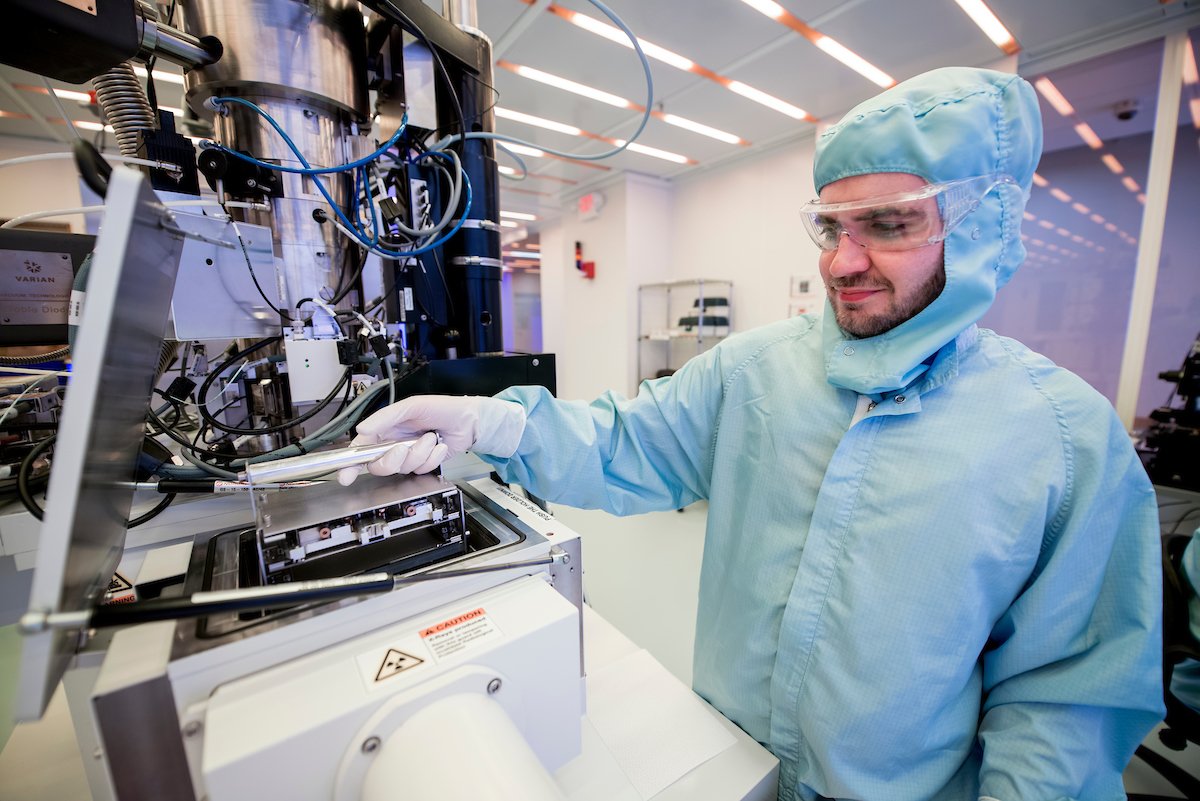Collaborations
Given the interdisciplinary nature of ECE's key research areas, our faculty collaborate with several centers and institutions on campus in addition to academic departments within the University. Some of our collaborations include:
Minnesota Nano Center
The Minnesota Nano Center is part of the NSF's National Nanotechnology Coordinated Infrastructure, a group of nanotechnology laboratories located across the country. The MNC has cleanrooms, and other labs and facilities that support research into nanomaterials and biological applications of nanoscience. The Center also supports fabrication, synthesis and characterization of nanoscale materials and devices for academic and industrial users.
Characterization Facility
The Characterization Facility (CharFac) provides University researchers access to materials characterization instrumentation while also engaging with the larger community (academic and industrial) in collaboration, training, and educational endeavors. As a shared facility that provides sophisticated instrumentation capabilities, it supports research in a wide range of fields ranging from nanoscience to biology to pharmaceutical.
SMART
SMART (Spintronic Materials for Advanced InfoRmation Technologies) is a world-leading research center that brings together experts from across the nation to develop technologies for spin-based computing and memory systems. The Center's goal is to investigate ground-breaking technologies that will enable computer systems to operate using the spin of an electron, as opposed to its charge, which is the basis of today’s computers.
Minnesota Supercomputing Institute
The Minnesota Supercomputing Institute provides state of the art supercomputing infrastructure to support science and engineering research within the University of Minnesota community and outside users. The institute's resources support scientific inquiry in projects that depend on or can be accelerated by advanced research computing.
Materials Research Science and Engineering Center
The Materials Research Science and Engineering Center supports cross disciplinary materials research that addresses critical science and engineering problems. It supports critical future technologies that enable and impact areas as diverse as biomedicine, nanoscience, renewable energy, and information technology. The University of Minnesota MRSEC is part of the NSF's MRSEC program (university-based) that reinforces the Foundation's commitment to excellence in interdisciplinary research and education.
Earl E. Bakken Medical Devices Center
The Earl E. Bakken Medical Devices Center combine world class expertise from the College of Science and Engineering, and the Academic Health Center. Situated within the Institute for Engineering in Medicine, the interdisciplinary program brings together basic, applied and translational research, education, training, and outreach related to medical devices.
Institute for Engineering in Medicine
The Institute for Engineering in Medicine (IEM) is an interdisciplinary research organization committed to advancements in healthcare through research partnerships between engineering and medicine involving academia and industry. The IEM facilitates multidisciplinary collaborations in research and education between faculty in the health sciences, faculty in the College of Science and Engineering, and the biomedical industry.
Institute for Mathematics and Its Applications
The Institute for Mathematics and Its Applications brings together mathematicians, engineers, and scientists to develop solutions to current and anticipated scientific and technological challenges. The goal is to develop new mathematics and its applications while also training emerging scholars, educators, and practitioners in the field.
Technology Leadership Center
The Technology Leadership Center is an interdisciplinary center that offers three distinct master's degrees: MS in Management of Technology (MOT), MS in Security Technologies (MSST), and MS in Medical Device Innovation. Drawing on the expertise of faculty from across disciplines, the Center focuses on helping professionals develop leadership skills to be applied in technology-based environment.
Charles Babbage Institute
The Charles Babbage Institute facilitates and advances the understanding of computing and information, and their impact on society. The Institute hosts conferences and workshops, conducts research, publishes scholarly books and articles, and engages in contributing to education within the campus and beyond on topics related to computing, its significance and its consequences on our lives.
Center for Transportation Studies
The Center for Transportation Studies conducts is involved in research, education, and public engagement on transportation issues that range from innovation to policy to equity. It develops connections among researchers, practitioners, policymakers, and supports cross-disciplinary research on critical and emerging issues.
